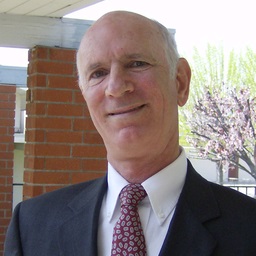Characteristics of Successful Tech Hubs and Start-ups
Lessons from the Origin and Growth of Silicon Valley
Abstract: Silicon Valley is commonly acknowledged as the tech capital of the world. When most people think of the Valley, they probably recall semiconductors, personal computers, software, biotech and self-driving cars. How did Silicon Valley come into being, and what can we learn? The story goes back to local Hams (amateur radio operators) trying to bypass RCA’s tube patents, Stanford “angel” investors, the sinking of the Titanic, WW II and radar, and the SF Bay Area infrastructure that developed — these factors pretty much determined that the semiconductor and IC industries would be located in the Santa Clara Valley, and that the Valley would remain the world’s innovation center as new technologies emerge, and become a model for innovation worldwide.
This talk will give an exciting and colorful history of development and innovation that began in Palo Alto in 1909. You’ll meet some of the colorful characters – Cyril Elwell, Lee De Forest, Bill Eitel, Charles Litton, Fred Terman, David Packard, Bill Hewlett, Bill Shockley and others – who came to define our worldwide electronics industries through their inventions and process development. You’ll understand some of the novel management approaches that have become the hallmarks of its tech startups. Many of these attributes can be found, to greater or lesser extent, in other technology hubs; however, the SF Bay Area has five generations of experience, as well as a “critical mass” of talent, making it difficult for others to catch up. The key attributes will be illustrated and analyzed, for consideration by other tech hubs, and for entrepreneurs interested in creating their own start-ups.
 Date: Thursday, 24 February 2022
Date: Thursday, 24 February 2022
Time: 5:30 – 6:30 PM PST
Location: University of Utah, Salt Lake City, Utah
Sorensen Molecular Biotechnology Building
or live webinar via WebEx
Sponsors: IEEE Utah Section Young Professionals Affinity Group, and IEEE Utah Section
Co-Sponsor: IEEE SCV Technology & Engineering Management Society
Registration: Click here
Speaker: Paul Wesling, Hewlett-Packard (retired)
IEEE Distinguished Lecturer and Life Fellow
Silicon Valley, California USA
Speaker Biography: Paul Wesling has observed the Valley for decades as an engineer, executive, resident, and educator. He received degrees in electrical engineering and materials science from Stanford University, then worked locally at companies including Lenkurt Electric, Sperry-Univac, and Amdahl, joining Tandem Computers in Cupertino in 1985. Paul retired from HP in 2001, then served as “Mr. IEEE” for the San Francisco Bay Area for 10 years. He is a Life Fellow of the IEEE. As vice president of publications for the IEEE Electronics Packaging Society for 22 years, he supervised four archival journals and a newsletter. He received the IEEE’s Centennial Medal, the Board’s Distinguished Service award, the Society Contribution Award, the IEEE’s Third Millennium Medal, and the EPS Society’s Presidential Recognition Award. He edits the IEEE/ASME/SEMI Heterogeneous Integration Roadmap for prediction of technology directions in electronics packaging.
